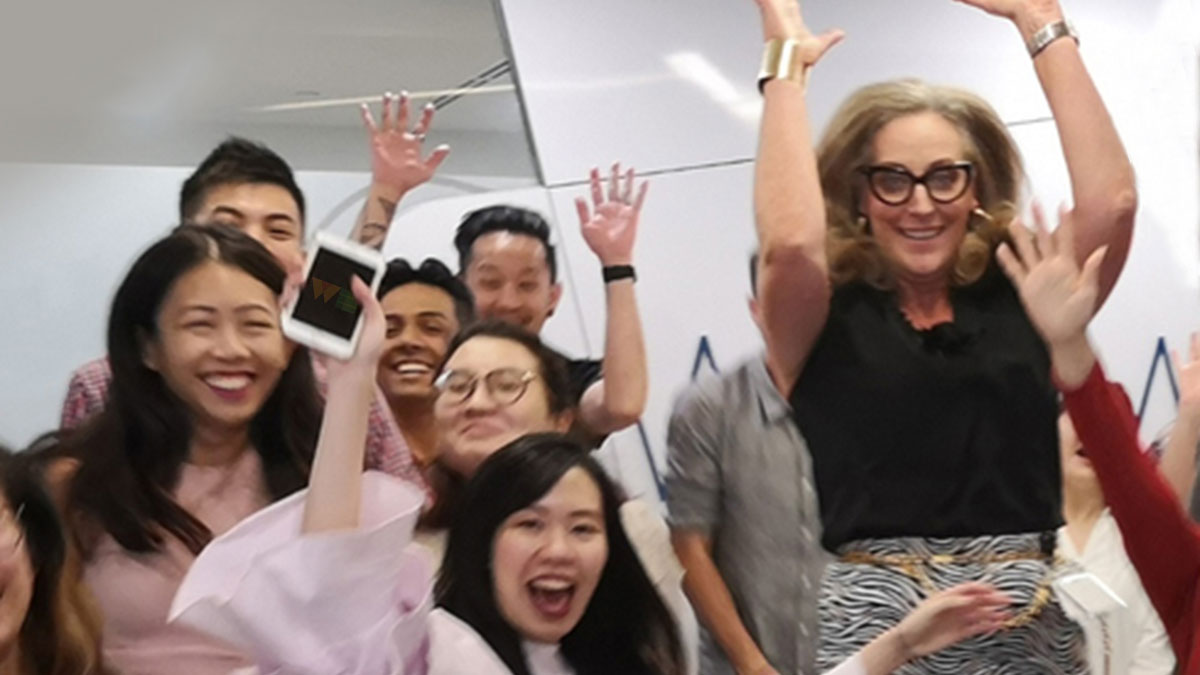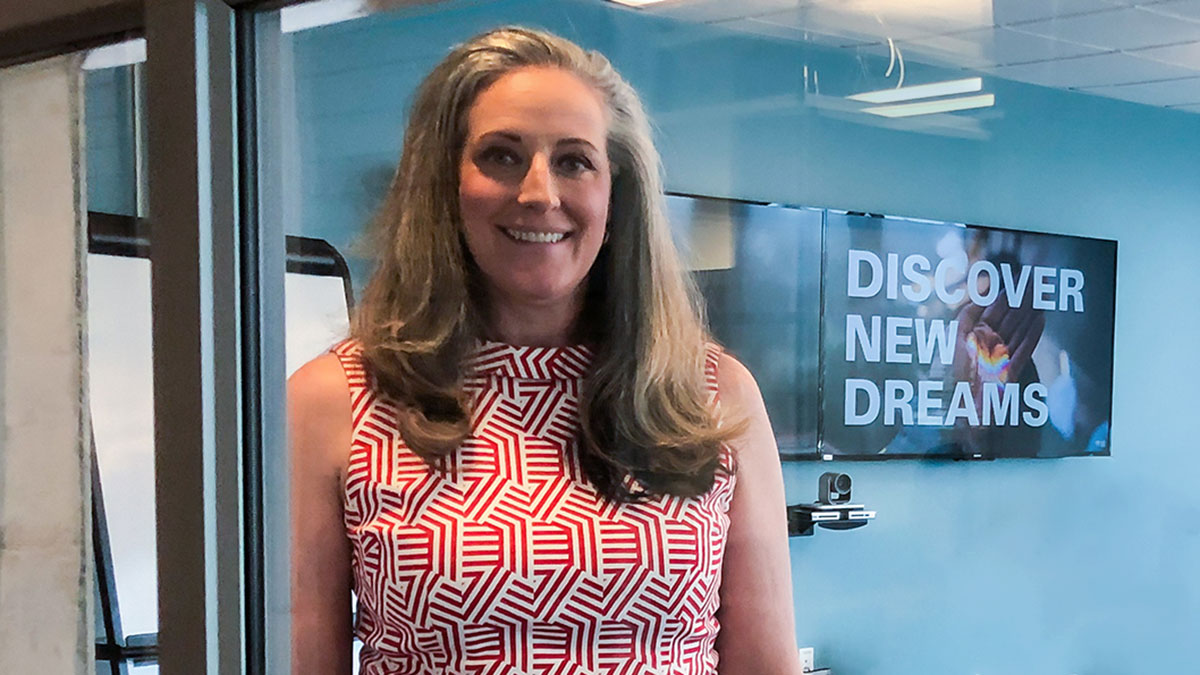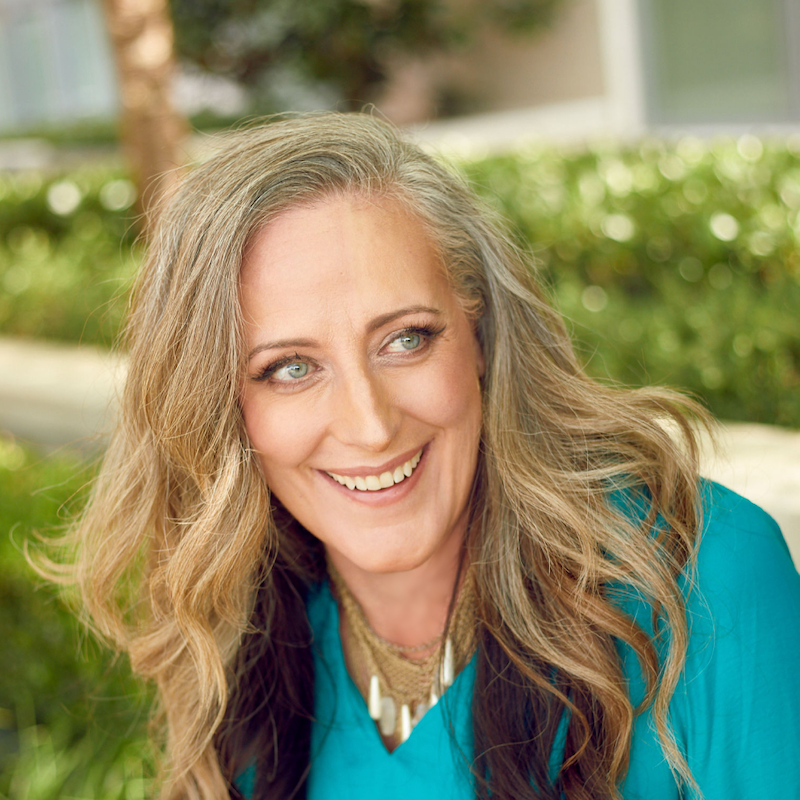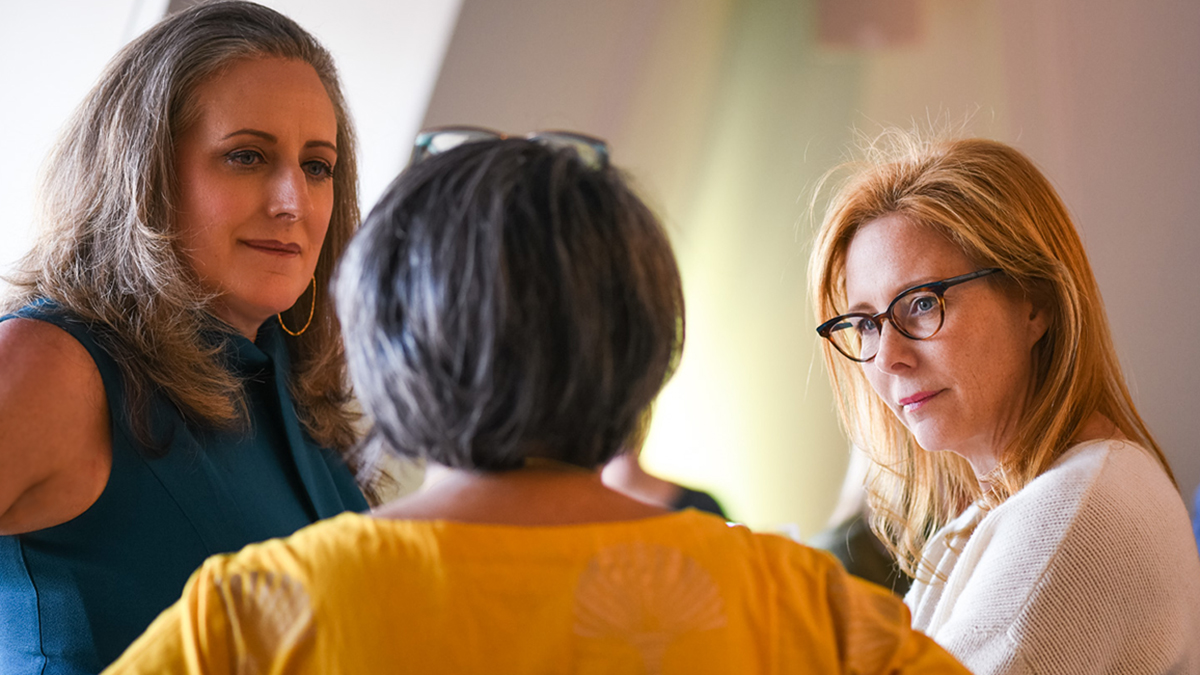We were nearly three months into lockdown, that horrible time when it was hitting everyone that quarantine wasn’t going to be a temporary blip. We weren’t going to flatten the curve and go back to normal. Normal was over.
On a Teams meeting, I noticed that one of my team members seemed off. He was struggling to present well, but the distress was leaking from his eyes. So afterward I called him.
“How are you doing?” I asked.
“I’m fine.”
“No, really. How are you?”
“Really, I’m fine,” the person repeated. But I could hear the tension in his voice.
“Well, the reason I’m asking is because I’m not okay,” I said.
I said I was worried about my in-laws who were in an assisted living facility. I was worried about my BIPOC stepchildren in the aftermath of the George Floyd killing. Even though I knew we were still very lucky—healthy, employed, etc.—I felt overwhelmed by all the problems I couldn’t solve. For the first time, I didn’t have a playbook, and it scared me. Each day, it felt harder to psyche myself up, plaster that façade on and pretend to be okay. Sometimes I could barely get out of bed.
It took a while, but he finally let his guard down and confided that, yes, he was struggling, too. This had been the hardest year of his life, he said, choking back tears. He felt lonely, exhausted, broken.
By being vulnerable, I gave my team member permission to share what was really going on with him. But it wasn’t easy for me. As a woman in corporate America, I learned early in my career that to get ahead I’d need to present as invincible. I tried to be like the woman in the old Enjoli commercial—bringing home the bacon, frying it up in a pan, and keeping my emotions hidden behind that unflappable “24-hour woman” exterior. I was trying to do it all, to get a seat at the table—a table of mostly men. Being vulnerable was not a way to get there.
I’ve always strived to be a compassionate leader, but the system often rewards a more driven and task-oriented mindset. After the pandemic hit, that style no longer worked. Everyone I knew felt completely rattled. I spent a lot of time asking myself, “How do I lead when I feel so uncertain myself? What is my role in this suddenly-unrecognizable world?”
I’m not alone. In a recent WE Communications survey of C-suite executives and senior managers, 86% of leaders told us that this past year has made them more introspective, and the majority have spent time examining their own fears, limitations and defenses. They’re also working to identify the gaps between their intentions and their actions.
That’s a pretty remarkable shift from the way we’ve typically seen leaders—bold, brash, never showing a trace of doubt. But the world has changed. This year has been exceptionally hard, but it has also taught us important lessons on how to lead, lessons leaders must adopt to stay relevant in this new era.
Nix normal
In March, Unilever announced that it would no longer use the word “normal” on its beauty and personal care products. The company realized that the word has far deeper implications that just describing hair and skin that isn’t particularly oily or dry. “Normal” sends a message that there is one right way to be—heaven help the person with combination skin!
The rest of us should follow Unilever’s lead—because “normal” isn’t just the wrong word for conditioner. It’s the wrong way to think about things. Yes, hopefully we will soon all be able to go to the movies and hug our friends. But we’re never going back to “normal.”
Mandate self-care
The Centers for Disease Control reports that the number of people feeling anxious or depressed jumped to 37%, up from 11% in 2019. I certainly saw this spike with my team. Everyone was hitting walls, but as I spoke with people, I realized the problem wasn’t their jobs. It was living in an overcrowded house with two small kids to home-school, or living alone in a 600-square-foot high-rise apartment. So I started giving very specific orders:
“I need you to block out two hours in the middle of the day to home-school your child.”
“I need you to take Election Day off, because I know politics are trigging for you.”
“I need you to take your vacation time—even though I know none of us are going anywhere.”
When your team members are stressed and overwhelmed, listening isn’t enough. You have to anticipate their needs. Seventy-eight percent of leaders told WE that leading with empathy matters more to them now than it did last year. That’s not going to change. From here on in, leadership will require a super-charged level of empathy, vulnerability and compassion.

“Tell me more”
A recent EY survey found that more than 40% of U.S. workers feel physically and emotionally isolated at work. Instead of bumping into each other in the elevator and chatting by the office Keurig, we’re staring past each other on screens, trapped in our Brady Bunch boxes.
It’s taking a toll. But the good news is, when respondents were asked when they felt the greatest state of belonging, 39% said it was when their co-workers checked in on them.
That’s important to remember, whether you’re returning to an office or work for one of the many companies that is switching to a remote or a hybrid work model. We have to take that extra time to make sure our people feel seen and appreciated. When a co-worker admits they’re feeling wonky, don’t brush them off with business-speak. Stop, listen and say, “tell me more.”

Remember your needs, too
“Once the world went into lockdown a year ago, I felt like I logged onto work and I’m still waiting to log off,” one exhausted woman told The New York Times.
Was she reading my diaries? One of my biggest challenges this year has been to give the same space and compassion to myself as I give my team. But I’m working on it. When my company’s CEO or CFO asks how I’m doing, I tell the truth—even if the truth is, “not great.” I also try to model the self-care I want to see in my team—carving out time for a bike ride and (mostly) staying offline during the weekends.
I can’t wait for the days when we’ll be able to hug each other, jet to new cities and hear a waiter say, “Can I start you folks off with some appetizers?” But I’m done with normal. We’ve all been through a very hard time, and the aftershocks will keep hitting us—in different times, and in different ways. It’s time to stop trying to squeeze ourselves in the “normal” box and allow ourselves to just be human. Yes, that can feel lousy sometimes, but when we allow ourselves to be who we really are, we also make space for the good stuff, like joy and delight. Now there’s a comeback I’m ready for.


